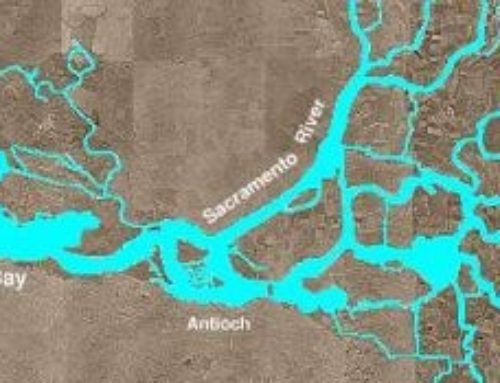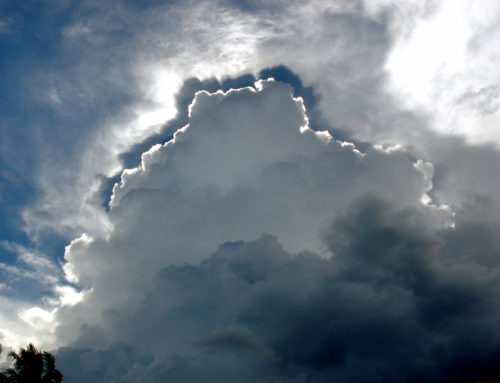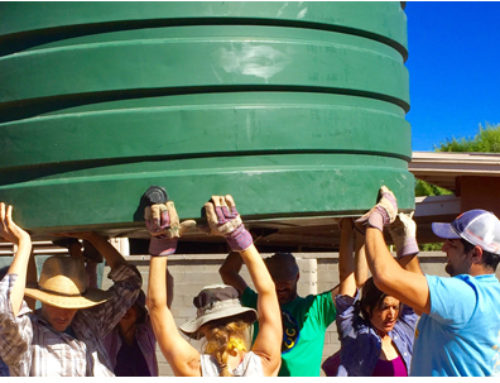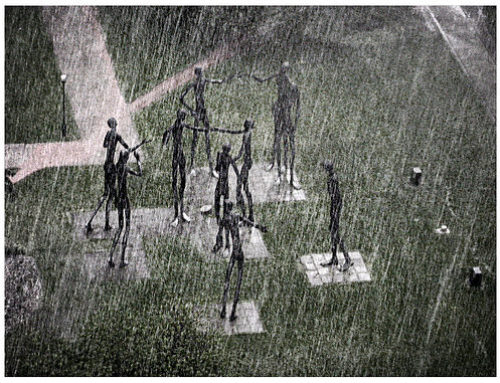-
I am just spoiled. I spend all day learning, thinking, talking and strategizing about water and water use reduction. Today it led me to this great NPR series on the struggles over water in the southwestern United States. One thing I can promise: it’s not over yet. Take a listen!
Struggling over Water: A Series Overview (NPR Podcasts)
The Southwest is largely an arid desert. Yet that dry, hot landscape seems to be the place where thousands upon millions of people want to live.
So, for as long as people have settled in the West, there have been disputes over where the limited and undependable supplies of water should go and who should get them. For most of the past century, agriculture has been the winner of the water wars, receiving the great bulk of water from the Colorado River and its two large reservoirs at Lake Mead and Lake Powell.
But with expanding populations and dwindling water supplies, that water equation is changing.
This week, Morning Edition explores some of the conflicts that arise as different groups of people seek to maintain their hold on — or to get a hold of — more water.
In Part 1, airing on Tuesday, Howard Berkes reports on a plan developed by water officials in southern Nevada to build a 300-mile pipeline to bring water from rural Nevada to Las Vegas. They’ve applied for the water rights in seven rural valleys where cows and horses outnumber the rural population. Most rural residents aren’t happy with the idea. They don’t have the political or economic clout to stop Las Vegas, but they’re trying anyway.
In Part 2, airing Wednesday, Ted Robbins profiles the woman behind the rural water pipeline, Patricia Mulroy. Mulroy heads up the Southern Nevada Water Authority but she is more widely known as Las Vegas’ water czar. She’s a fiercely determined and effective advocate for her city. Her efforts to promote conservation and find new sources of water for the desert metropolis are paying off, but critics question how much a desert city can continue to grow.
These conflicts are taking place against the backdrop of an ongoing drought and the specter of continued climate change. In Part 3, we look at how the main water source for most of this region, the Colorado River, has been affected by drought, and how that may affect the water politics in the upcoming decades.
Daniel Kraker of member station KNAU takes us to the shores of Lake Powell, the gigantic reservoir behind the Glen Canyon Dam. Lake Powell, along the Arizona-Utah border, is at half its capacity. And with the Colorado River basin entering its eighth year of sustained drought, it doesn’t look like the reservoir will be filling up again soon.
Then, in a Morning Edition interview, we discuss how disputes over water in the region have been and will continue to be affected by the dwindling supplies.
Finally, in Part 4 on Friday, we look at strained water resources in another region of the United States. Traditionally, the East has been a place where rainfall and water were abundant. But farmers in Tennessee are calling the current drought the worst in more than a century. Blake Farmer of member station WPLN in Nashville says that the ground is so dry, even the weeds won’t grow.
We also talk with Cynthia Barnett, author of Mirage: Florida and the Vanishing Water of the Eastern United States. She discusses Florida’s Lake Okeechobee, a reservoir where water levels have fallen so low that fires recently broke out on the lakebed.
http://www.npr.org/templates/story/story.php?storyId=10960137






